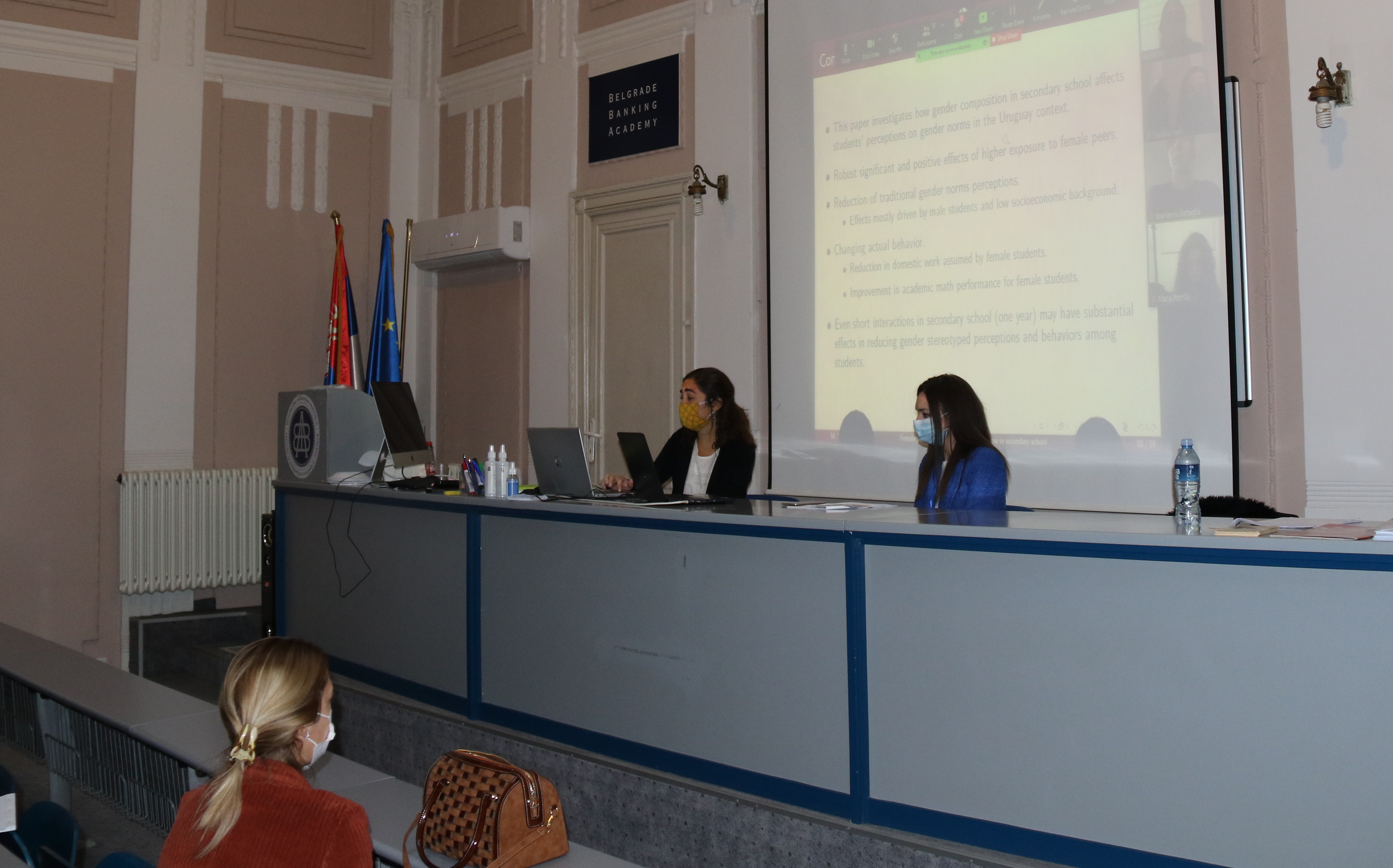Blog
The new normal
My experience in an online cohort of visiting PhD Fellows
Everyone that has been engaged in a PhD experience agrees that the whole process is a tough and sometimes lonely challenge. However, the visiting PhD fellowship at UNU-WIDER equipped me with additional discussions, guidance and networks needed to overcome these challenges. If you are now starting, or if you are in the finals of your PhD journey, I would definitely recommend that you apply for the UNU-WIDER PhD Fellowship Programme. There is no way you will regret it.
The online PhD fellowship was a unique opportunity at this stage of my career. It helped me improve the initial chapter of my PhD dissertation substantially — helped via insightful discussions with colleagues. During the programme I attended several events and started discussing my research. I had the privilege to be invited to present my research project at the WIDER Development Conference 2021. My paper also got accepted by the LACEA-LAMES annual meeting, the LACEA Network on Inequality and Poverty Uruguayan seminar, and also the (in person!) Applied Economics Conference: Labour, Health, Education and Welfare. Hopefully, in the future I will also be able to present my paper at UNU-WIDER and gain the in-person experience in Helsinki.

A profound motivation
As a female researcher, my deep interest in gender inequalities started early in my career. My bachelor’s dissertation in economics shed light on the occupational segregation in my home country, Uruguay, a developing country in South America. Additionally, my master’s research also showcased significant labour market motherhood penalties, based on unique administrative labour records and using an event study design. Currently, my PhD project aims at understanding the roots of gender inequalities to inform sound and evidence-based public policies.
Gender gaps in Latin America have been declining sharply during the past few decades. Educational gaps have reversed, and female labour force participation has increased notably. However, labour market patterns have not changed substantially. Uruguay is no exception. Despite having one of the highest female labour force participations in Latin America, wage gaps are still relatively high. Women receive 25% less wage than men.
While pioneer theoretical frameworks based on human capital factors explain a decreasing portion of gender gaps, an emerging literature points out to gender norms and stereotypes that lead to persistent gender inequality. By shaping preferences and influencing skills formation, norms may become an obstacle to girl’s educational achievements and future economic outcomes. Yet, the way in which gender norms perceptions are shaped and what drives its changes over time are still open questions.
Researching gender norm perceptions
The research proposal I completed during the UNU-WIDER PhD Fellowship Programme aimed to contribute to the literature by exploring these unanswered questions. I studied how school contexts can shape teenagers’ perceptions on gender norms. I analysed the effects of peer gender composition on students' gender norms perceptions. This was based on a unique Uruguayan nationally representative survey that includes information on six questions eliciting views on gender norms for ninth grade students (around 15 years old).
My results suggest that a higher exposure to female peers has a robust and statistically significant effect on leading students towards more progressive gender perceptions. These effects are stronger among male students, which is important as males are characterized by more traditional gender norms compared to female. I also show that more exposure to female peers not only operates by reducing traditional gender perceptions, but also by changing behaviour. First, by reducing the time devoted to domestic workload assumed by female students. Second, by improving academic performance in mathematics — a field where female students have relatively worse results. School contexts provide a window of opportunity to implement policy interventions aimed at affecting gender attitudes in adolescents towards a more egalitarian society.
A unique opportunity on a key stage
Even though COVID-19 prevented in-person engagement with my colleagues in the Helsinki office, the programme still delivered for me. Through scheduled meetings with the supervisor and virtual coffee breaks with the UNU-WIDER personnel, I got the feeling I was a part of the WIDER network.
This experience provided me with a state-of-the-art insight of research in development economics that broaden the scope of my research agenda for my second chapter. This was possible due to the invaluable support from my mentor Rodrigo Oliveira. Also, by engaging with other PhD fellows and networking with WIDER top researchers. In the second chapter I will study the transmission of gender-role attitudes between mothers and their offspring.
My experience at UNU-WIDER came during a key stage of my PhD journey. Everyone agrees that the first chapter of the thesis is a major milestone in this long journey. UNU-WIDER helped me overcome this challenge and face the next steps with confidence.
The author is a PhD student in Universidad Nacional de La Plata in Argentina.
The views expressed in this piece are those of the authors, and do not necessarily reflect the views of the Institute or the United Nations University, nor the programme/project donors.
 Join the network
Join the network


